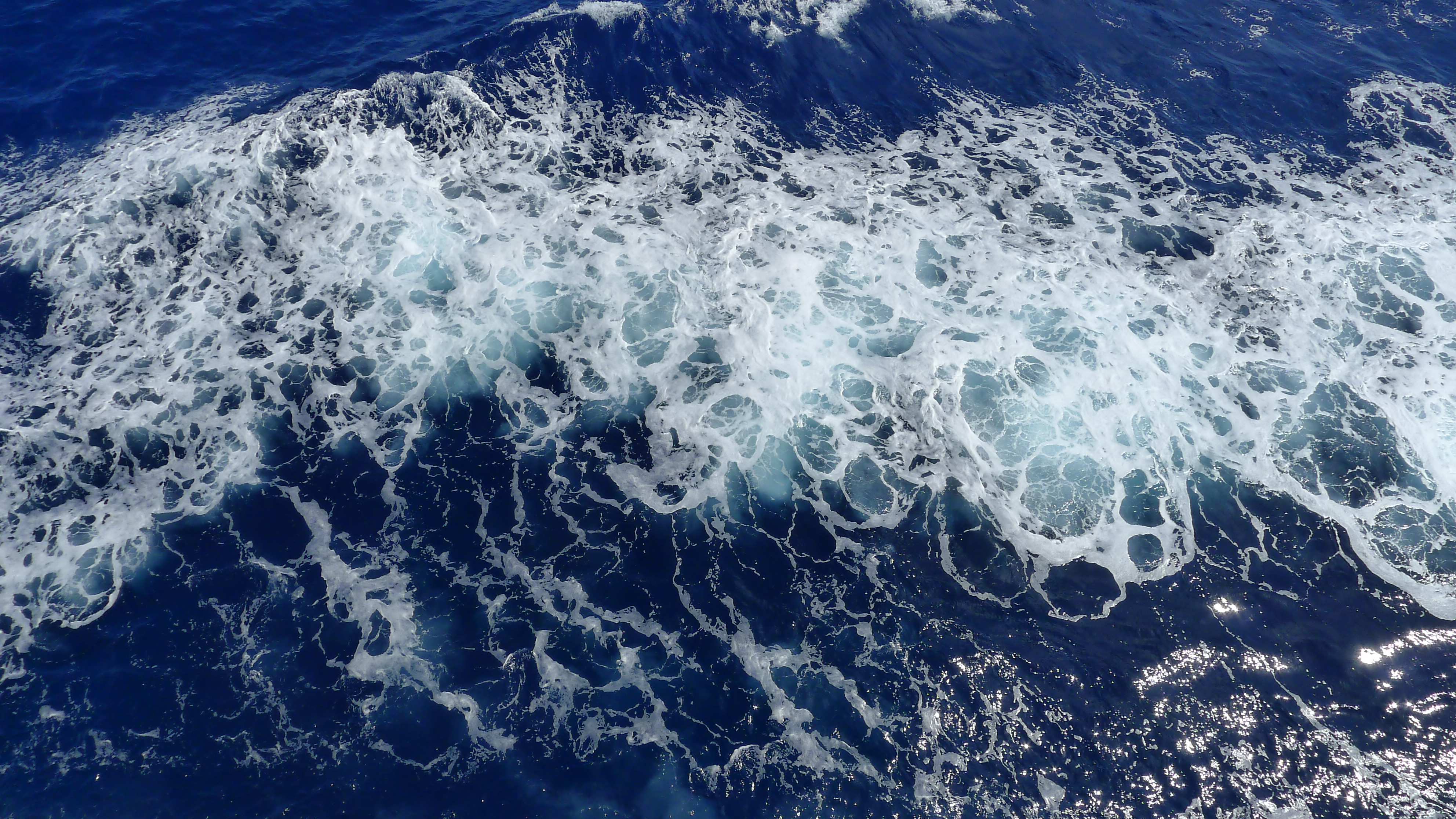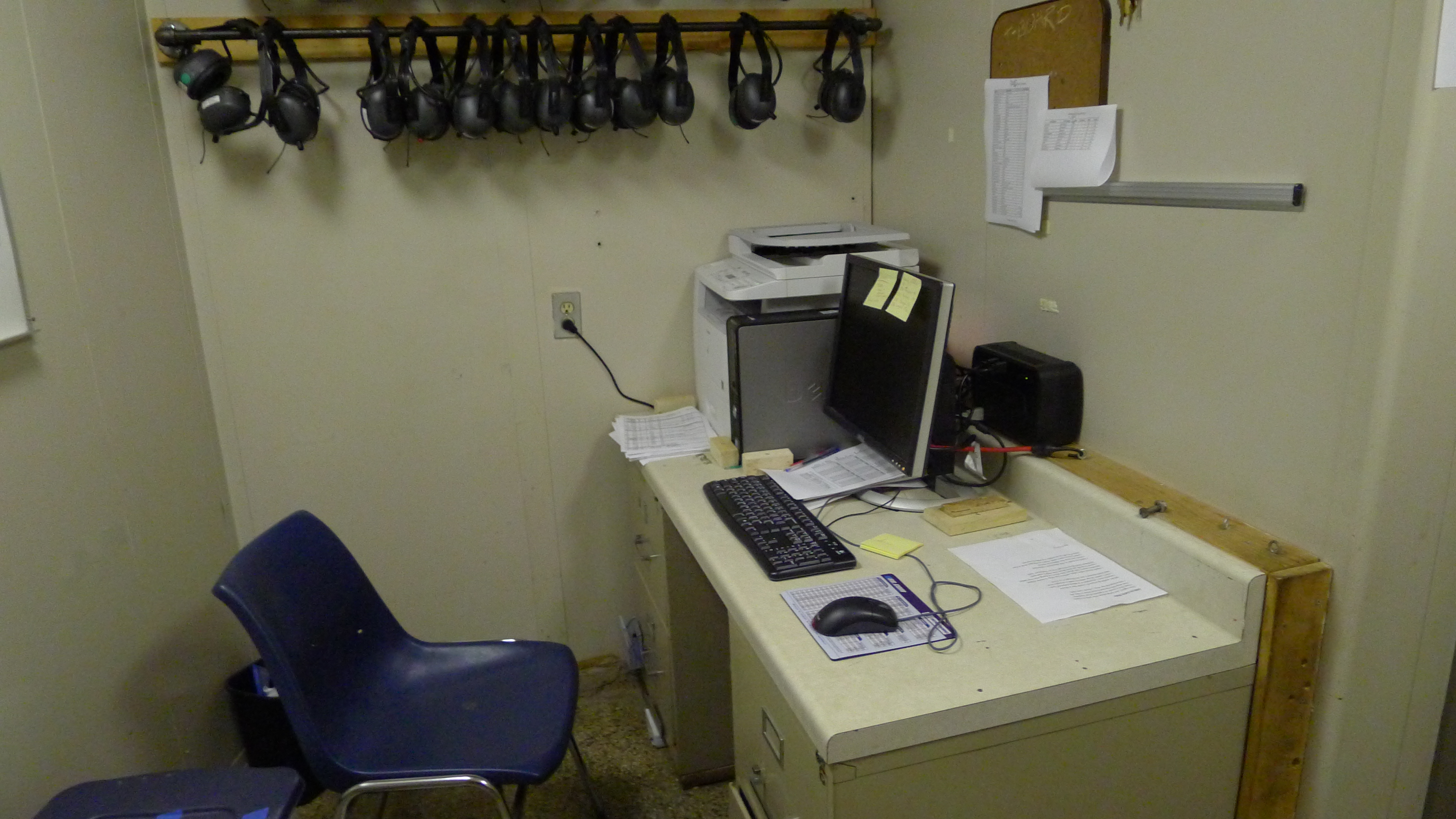My typical day onboard a working ship
One morning on my recent three-month ocean voyage I asked, “What day is it?” I was looking for a Day or a Date, so I’d be able to figure out what the plan was for the day. However, the answer I received was, “It’s a Ship Day.” And indeed, that was true.  There are really only two types of days while on a working ship, There’s a “Ship Day” and a “Port Day” and with only a few exceptions, every Ship Day is just like every other Ship Day. In fact, we were having a Ship Day on both Memorial Day and the 4th of July. I didn’t even know what day it was until someone else mentioned it.
There are really only two types of days while on a working ship, There’s a “Ship Day” and a “Port Day” and with only a few exceptions, every Ship Day is just like every other Ship Day. In fact, we were having a Ship Day on both Memorial Day and the 4th of July. I didn’t even know what day it was until someone else mentioned it.
So what did I, as a civilian, non-instructor, non-military, non-officer working onboard a maritime college ship, experience as a normal day?
I’m going to start with the overnight, since the overnight dramatically impacted how successful the day was. If we were in relatively calm waters, the nights were fine.  I got used to the ship noises relatively quickly. There are constantly groans and squeaks of doors and equipment and furniture as the ship slightly sways from port to starboard (side to side) or from bow to stern (front to back). There is the ever present sound of the air blowers, as there are no portholes that open so air is constantly circulated to all the cabins, offices, classrooms, and holds. There are footsteps of people working all night as they walk above us. But these were all normal noises that didn’t impact my night of sleep very often.
I got used to the ship noises relatively quickly. There are constantly groans and squeaks of doors and equipment and furniture as the ship slightly sways from port to starboard (side to side) or from bow to stern (front to back). There is the ever present sound of the air blowers, as there are no portholes that open so air is constantly circulated to all the cabins, offices, classrooms, and holds. There are footsteps of people working all night as they walk above us. But these were all normal noises that didn’t impact my night of sleep very often.
But then there were the nights where the weather was windy or we were on the heels of a nasty frontal system, or we just seemed to be hitting the waves hard. On those nights, sleep came in chunks. An hour here. A half hour there. On those nights, getting through the next day was a bit tough. On these nights, the ship rocked and rolled dramatically. Doors slammed, and the ship groans were louder. Drawers on dressers that weren’t secured slammed opened (yes, you can slam something when it opens). In addition, things inside the medicine cabinet rattled around, and anything on top of dressers or desks went flying. Anything on the floor would slide around. Even things you had secured could work themselves free. And of course, people trying to sleep would roll as well. You’d have to find a way to prop yourself so you wouldn’t roll around. These nights were definitely a lousy way to start the day.
People work 24 hours a day onboard, making sure the steam engines are working well, that water production continues properly, that any other ship traffic is identified. They make sure navigation continues, problems are identified and resolved, and that all are safe. The mess deck staff was up at 2am getting food ready for a 6am start. Round-the-clock watches were held, which required both officers and cadets to be awake and alert. So my specific schedule was quite luxurious when contrasted with the schedule of many others on board.
I started each ship day at 6am, Sunday-Saturday, which was the same time cadets had reveille and breakfast started. Food was served until 7:30 so we had to be in the mess deck by then. Since I wanted to get to my office by 7:45, I targeted a 7am breakfast time. So if the ship wasn’t rocking and rolling too bad, I’d go six decks down to the cardio room at 6am and spend a half hour or so getting my heart pumping. On days where the fuel tank that was under that room was working, it was very hot in there, regardless of the time of day. So it was easy to work up a sweat. On other days, it was a bit cooler and more like a normal gym. Regardless, I’d do my workout and then follow that by a hike up six decks which was a workout by itself. A quick shower, straightening of the room, and it was off to eat, have coffee, chat with my co-sailors and find out if there was anything special we needed to know for that day. Then I took a quick trip to the cabin before I’d have to combat the traffic and long commute (it only took about 30 seconds to get to my office).
 My job was the Engineering Yeoman which is just a fancy way of saying I did administrative work for the Engineering department. This included inputting daily grades from all the watches and maintenance work teams. I also input the grades from tests and other activities. I graded tests and posted grades, made copies, tracked inventory, prepared signs, assisted cadets and did anything else that was required on a daily basis. I started somewhere around 7:45, and worked till noon. I’d then have lunch, and be back in my office by 1, where I’d stay until around 5, although I might end a little earlier or a little later depending on the work I needed to finish that day. Between 5 and 6, I’d usually relax before dinner at 6. Dinner was served from 5 to 7, and after I ate, I’d relax and chat with fellow shipmates. I might also read or finish crossword puzzles or play scrabble. Sometimes I’d sit outside on the deck if the weather was good, which didn’t happen often. Other times, I’d watch a DVD or get a movie from the library. This was the schedule for every single day unless we were in port and on two Sundays where I only had to go to the office for an hour or so.
My job was the Engineering Yeoman which is just a fancy way of saying I did administrative work for the Engineering department. This included inputting daily grades from all the watches and maintenance work teams. I also input the grades from tests and other activities. I graded tests and posted grades, made copies, tracked inventory, prepared signs, assisted cadets and did anything else that was required on a daily basis. I started somewhere around 7:45, and worked till noon. I’d then have lunch, and be back in my office by 1, where I’d stay until around 5, although I might end a little earlier or a little later depending on the work I needed to finish that day. Between 5 and 6, I’d usually relax before dinner at 6. Dinner was served from 5 to 7, and after I ate, I’d relax and chat with fellow shipmates. I might also read or finish crossword puzzles or play scrabble. Sometimes I’d sit outside on the deck if the weather was good, which didn’t happen often. Other times, I’d watch a DVD or get a movie from the library. This was the schedule for every single day unless we were in port and on two Sundays where I only had to go to the office for an hour or so.
Besides learning to live with no real calendar, living for three months with very few of the other things I was used to – no car, kitchen, Internet, personal email, cell service, cable service, mail, the news, and my newspaper – didn’t stop me from learning, visiting, and enjoying what I did have. It also made me greatly appreciate the “things” I do have at home. And this trip also made me realize what I really do enjoy about life on land because life is made very simple on board. You get up, you eat, you work, you eat, you sleep.
The routine and living without many on-land items made me re-realize it’s the little things I enjoy in my normal life. Being able to walk around barefoot (something that is not done onboard a working ship). Being able to cook a meal that is exactly what I want to eat. Spending time with loved ones. Being able to get to the store when I’m out of something. Being able to have an up-to-date newspaper delivered to my door. Being able to come up with nifty solutions to problems when the typical solutions are not available. I did have to be more inventive on board. I found that Velcroing curtain ties works great, and Velcro also works to keep your toothbrushes hanging on the wall when there’s no toothbrush holders! Actually, as an aside, I think having Velcro, duct tape, and WD40 with you at all times will solve most life problems.
While I’ve always appreciated the little things in life, this ship experience helped solidify in my mind how lucky I am. Both in my on-land life, and in my temporary ship life. Life is good.
My next blog will cover my thoughts on our visit to Gibraltar.
I think this is one of the most important info for me.
And i’m glad reading your article. But want to remark on some general things, The web site style is perfect, the
articles is really excellent : D. Good job, cheers
Thank you!